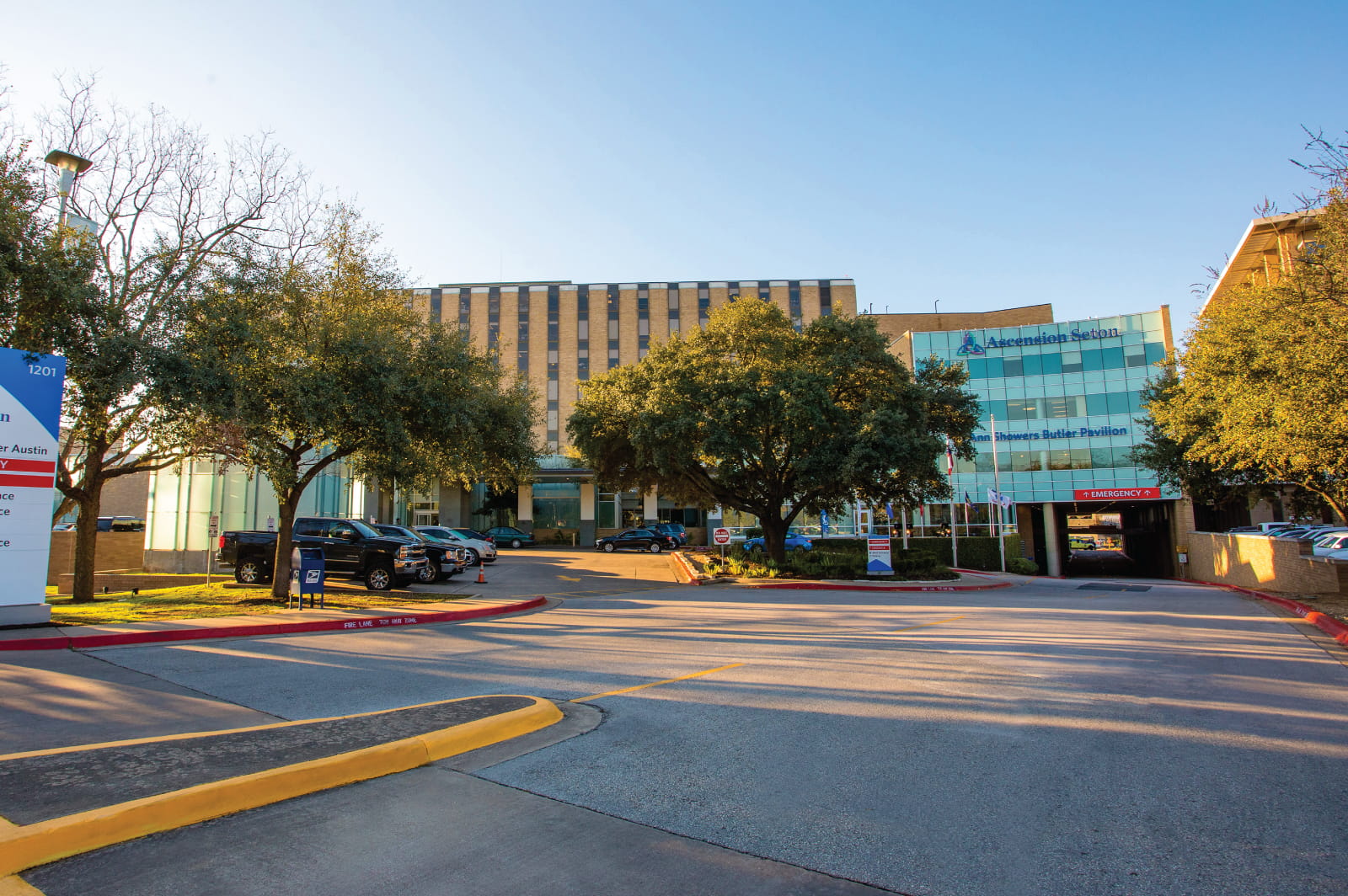
Preventive care and health screenings in Austin
Regular preventive health care and screenings may help find cancer and other health concerns early, when they are most treatable and when more treatment options are available. At Ascension Seton, we provide convenient diagnostic imaging tests, including mammograms, colonoscopies, low-dose CT lung scans and many other health screenings.
Preventive care and health screenings at Ascension Seton
Start a conversation with a doctor at Ascension Seton about the screenings that are right for you, based on your age and family history:
Colonoscopy
Regular colon screening may help find polyps and cancer early. Doctors at Ascension Seton recommend men and women get their first colonoscopy at age 45. You may need to get a colonoscopy earlier if you have a personal or family history of polyps or colon cancer, or if you have symptoms.
Low-dose CT lung scan
A lung screening helps you and your doctor better understand your lung health. A low-dose CT lung scan may help find lung nodules and cancer, and it may help diagnose lung fibrosis, COPD and other breathing disorders. Talk with a doctor at Ascension Seton about whether a low-dose CT screening is right for you.
Mammography
Care teams at Ascension Seton recommend annual mammograms beginning at age 40. If you have a family history of breast cancer, ask your doctor if you should have a breast screening test before you turn 40.
Cervical cancer screening
Care teams at Ascension Seton recommend regular Pap tests for women beginning at age 20 and recommend continuing those tests into their 50s or as recommended by their doctor.
Prostate cancer screening
Doctors at Ascension Seton recommend men at increased risk for prostate cancer begin speaking to their doctor about PSA-based prostate cancer screening at age 40. If not at increased risk, men are recommended to start prostate cancer screenings at age 50.
Health screenings for early cancer detection
Even if you don’t have a family history of cancer or are not having symptoms, start a conversation with a doctor about your risk factors for cancer and other health concerns. Our doctors provide tests and exams that screen for breast cancer, cervical cancer, colon cancer, lung cancer, prostate cancer, thyroid cancer, throat cancer and more.
- In your 20s: Women should begin getting regular Pap tests and clinical breast exams. Men should be getting annual health screenings.
- In your 30s: Women should continue getting regular clinical breast exams. They should begin getting HPV tests in addition to Pap tests. Men should continue with annual health screenings.
- In your 40s: Women should begin getting regular mammograms, colonoscopies, HPV tests and Pap tests. Men should begin getting colonoscopies. Men at increased risk for prostate cancer should also begin speaking to their doctor about PSA-based prostate cancer screening.
- 50 and older: Women should continue getting regular mammograms, colonoscopies, HPV tests and Pap tests or as recommended by their doctor. Men should continue getting regular colonoscopies and start or continue prostate cancer screenings. Older individuals should talk with their doctor about other screening tests that are right for them.
Be sure to check with your insurance provider about your coverage for screenings and preventive care. Many of our doctors offer convenient online scheduling so you can select a day and time that’s right for you.
Connected to advanced care at Ascension Seton
If you need more care, including more advanced treatment options, you are connected to compassionate care teams and specialists. They may include radiation oncologists, medical oncologists, surgeons, and physical therapists. Your care team will take the time to answer your questions and to explain your results, follow-up care, and procedures. We’ll listen to your concerns and work with you to determine the right care plan personalized for you.

